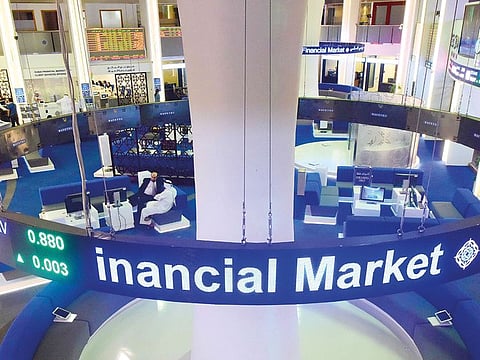DFM’s 8-year high opens way for a newer generation of investors to get in
Resident investors could shed some of that fixation with going West on their fund spreads

There is a growing frequency of cold calls inviting people for international trading, from forex to equities to commodities. This has reached the point where the number of cold calls for financial markets have exceeded those enquiring about real estate.
Curiously, hardly any of these calls relate to the domestic financial markets. Despite an increasing number of free seminars being offered throughout the city (a welcome development), the thinking among the young expat populace has been that
* Foreign markets offer better returns;
* There is a greater sense of ‘drama’ with captains of industry regularly engaging with the social media; and
* Western equity markets do not require you to submit to the ‘establishment’. (Hence the rise of meme stocks like GameStop, Chewy and the like).
This manner of investing is analogous to sports trading and emblematic of the casino-like mentality that has gripped investors. Similar trends have been observed in the past, and the history is clear as a bell as to how these fads end, but the more important point is to reflect on the change in culture underway with regards to the domestic financial markets.
Despite all the talk regarding globalization, and the commentary on inflation, the fact remains that nation states matter. (If they didn’t, all global economies would look the same.)
Real estate rules the narrative
Cultural differences are important, and in the UAE, there has been an emphasis on capital markets - both through IPOs as well as increased light in the secondary markets, where there are pronounced movements in individual companies on a daily basis.
Investors have already caught on to the fact that investing in real estate companies is almost a better way to get exposure to the sector, but more importantly, capital markets serve as a useful conduit to gain exposure and build wealth from other sectors as well. The IPO markets have already demonstrated that, but low allocations being awarded to investors - given the large degree of oversubscription - has meant there has been not enough of a follow through in secondary markets. Despite the stellar performance of most of these scrips.
An 8-year high
Dubai stocks are trading at an 8-year high, and yet, in most cases continue to offer compelling value relative to their Western counterparts. Therefore, it remains a source of some perplexity that there has not been a greater degree of involvement in the domestic markets. That change is underway is evident.
Equally evident is that momentum will continue to gather especially as the media starts to focus more on the announcements being made by these companies on a regular basis and balance the coverage dominated by the real estate space. (Most of these barely make it to the press, with the most recent example being the Ajman Bank rights issue.) It is worthwhile to note that in the last few decades, money management has been dominated by hedge funds, and ETFs, paving the way for a new money culture. It has almost become dogma to invest in one or the other as a means for long term investing.
While there is nothing wrong with this thought process, it ignores the points of history where financial markets in the West were dominated by individual investors. And that the recent disintermediation of information has led to this trend of momentum investing (often with little understanding of what they are trading in).
Taking on all investors
In the UAE, contrary to the common perception, financial reporting has become increasingly transparent, and easy to understand. This in turn has led to a greater understanding of domestic capital markets. Yet, there seems to be a belief that the Western markets are somehow better, with the local markets being dominated by an elite few.
This is not true as data reflects; the rich are just the tracer dye in the water, and the clearest evidence of the cultural shift and the rise of the small investor.
In America, the captains of financial markets like Michael Milken, Lewis Ranieri, and even Vanderbilt in earlier periods, prospered by betting on fundamental shifts. The same is true for investors currently engaged in the domestic capital markets. Investing in capital markets may well be America’s greatest cultural export, but it began with boring changes in technology and financial regulation. The UAE has offered a mechanism for investment without the ensuing drama, and individual investors (as well as cold callers) would do well to note the paradigm shift.
Sign up for the Daily Briefing
Get the latest news and updates straight to your inbox




